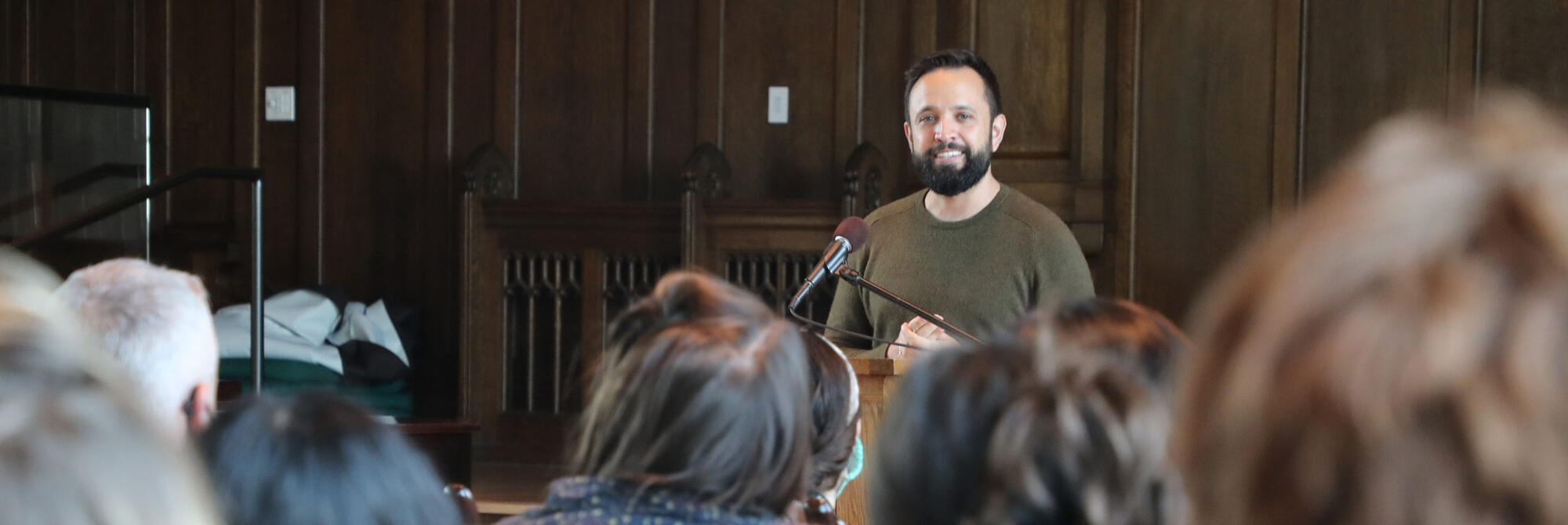Master of Divinity students often speak of "answering a call.” It can be a call to ministry in a wide range of religious traditions, but there are many other calls they answer. Hospital and hospice chaplaincy. Social justice work. Nonprofit advocacy. Climate activism. Education. Humanitarian aid. Whatever calls you, a master of divinity degree from Harvard Divinity School will open your mind and heart, and train you for a lifetime of service.
The three-year, full-time master of divinity (MDiv) program consists of rigorous intellectual scholarship combined with real-world experience, in settings such as churches, synagogues, mosques, hospitals, shelters, and other institutions of care. Students study their own faith tradition (and many others) alongside students from different traditions and backgrounds. Students who consider themselves “spiritual but not religious,” atheist, agnostic, or have embarked on their own spiritual formation, are a welcome and large segment of the HDS master of divinity cohort.
Students graduating with a master of divinity leave HDS with knowledge and experience that prepare them to serve within a religious community, to explore spiritually formative intellectual work, to evaluate and act on the needs and questions of religious and other communities, and to speak with both a pastoral and a public voice in many different settings.
